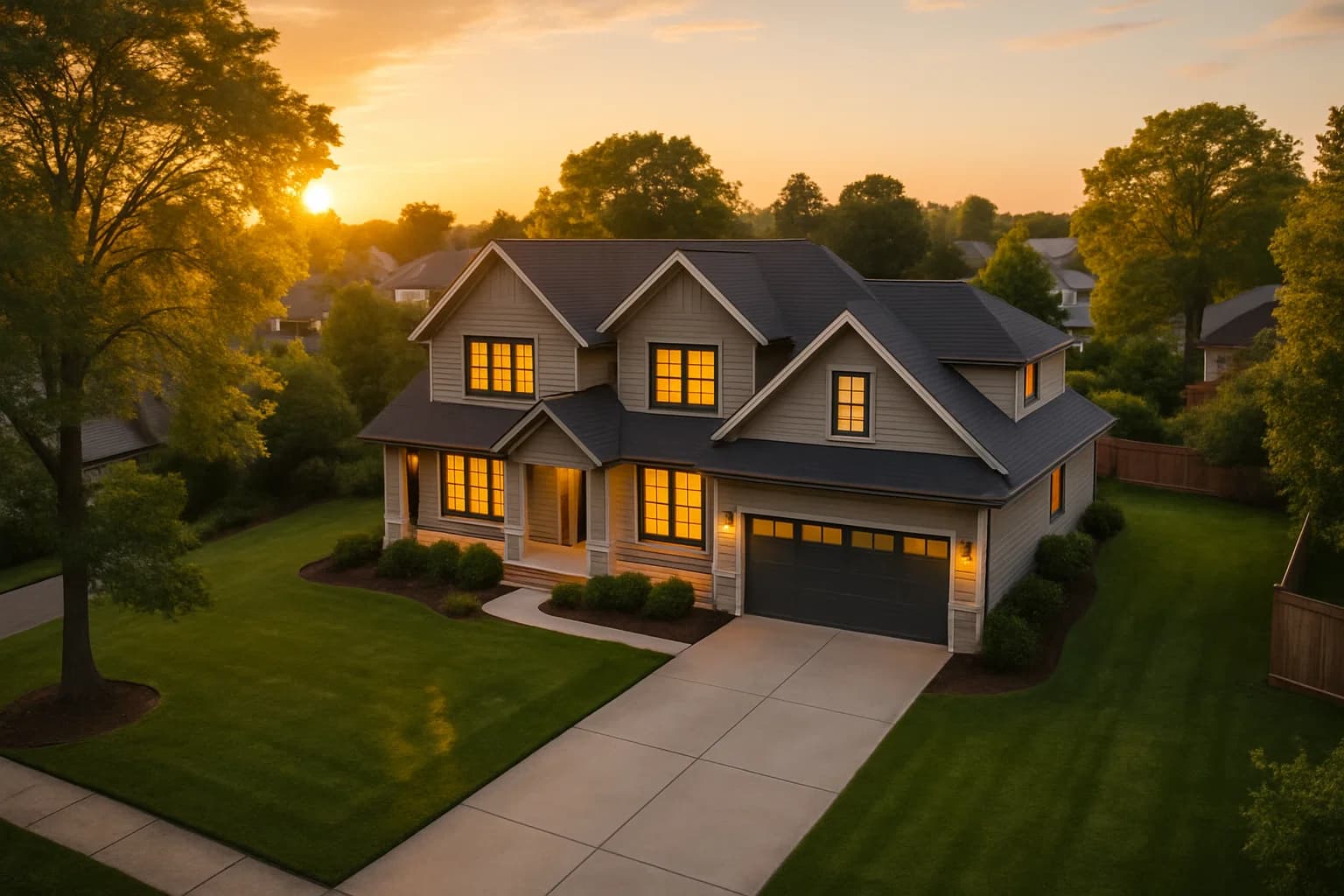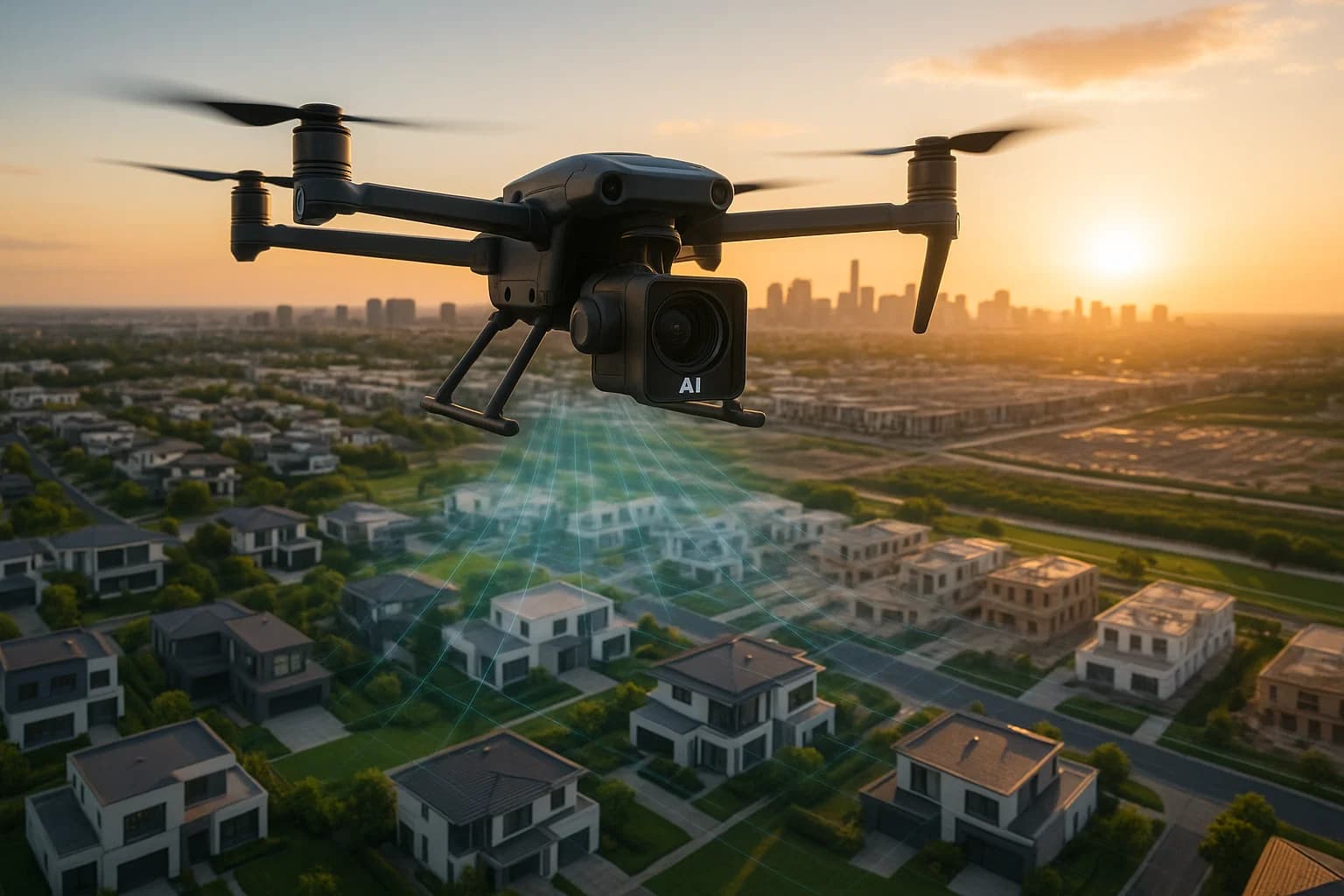The real estate industry is undergoing a quiet revolution—and much of it is happening from the sky. Over the last decade, drones have shifted from hobbyist gadgets to serious marketing tools for agents, brokers, and property developers. In fact, the National Association of Realtors (NAR) reports that nearly 23% of realtors personally use drones, while an additional 16% hire professionals to capture drone footage.
That means almost 40% of real estate professionals are already leveraging drone technology—and that number is growing fast.
Why Drones Matter in Real Estate
Real estate is about more than square footage and floorplans. Buyers want to see themselves in a space, and visuals are the most powerful tool for creating that connection. Drones allow agents to:
- Capture aerial perspectives — Showcasing entire properties, neighborhoods, and nearby amenities in ways traditional photography can’t.
- Create cinematic video tours — Smooth, sweeping footage creates a professional, engaging experience for potential buyers.
- Highlight property features — Large yards, pools, solar panels, or architectural details stand out more from above.
- Improve online engagement — Listings with drone photography and video receive significantly more clicks and shares compared to those with only ground-level photos.
The Shift Toward Virtual Experiences
Since the COVID-19 pandemic, demand for virtual home tours has skyrocketed. Drone footage has become a cornerstone of these experiences, allowing potential buyers to explore properties remotely. Zillow, for instance, found that listings with virtual and aerial tours sell 10% faster on average.
Pairing drone footage with 3D modeling and VR walkthroughs gives buyers an immersive sense of place before ever stepping inside the home. For high-value properties, this is no longer a luxury—it’s an expectation.
Regulations and Professional Standards
Of course, flying drones isn’t as simple as picking one up at the store. In the U.S., anyone using drones for commercial real estate must hold a Part 107 certification from the Federal Aviation Administration (FAA). This ensures compliance with airspace rules, safety regulations, and privacy laws.
Professional drone pilots also bring experience in framing, lighting, and editing, which means higher-quality content that stands out in competitive markets.
Looking Ahead
The future of drones in real estate is only expanding:
- Live virtual showings where agents can fly a drone in real time for remote clients.
- AI-driven editing tools that automatically create polished highlight reels.
- Thermal and mapping applications for property inspections, roof assessments, and land development.
For real estate professionals, the message is clear: drones are no longer optional—they’re essential.
Final Thoughts
Drones are reshaping how buyers and sellers experience real estate. They don’t just capture properties; they tell a story—about the home, the neighborhood, and the lifestyle.
For a company like Off-Duty Studio, specializing in real estate drone services means helping agents stay competitive in a crowded market. Whether it’s a small starter home or a luxury estate, aerial storytelling is fast becoming one of the most effective ways to connect buyers with properties.
Sources
- National Association of Realtors, 2024 Member Profile Report
- RISMedia, Why Drone Photography is a Must-Have for Real Estate (2023)
- Zillow, How Virtual Tours and 3D Homes Changed Real Estate (2022)
- FAA, Becoming a Drone Pilot (Part 107 Certification)
What do you think?
Share your thoughts with us — your feedback helps shape the stories we capture across St. Louis listings.
Get in Touch
